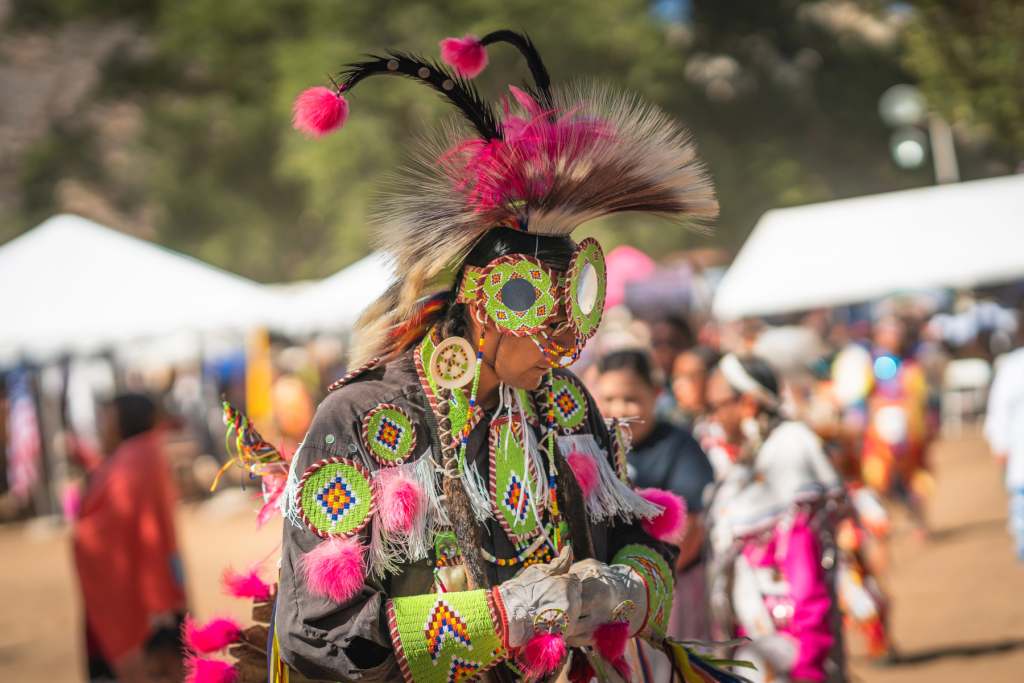Indigenous wisdom in the USA is deeply rooted in a profound connection to nature, community and spirituality. This holistic approach to life emphasises balance, respect and harmony with the world around us. Wellness practices such as meditation, herbal medicine and ceremony are key aspects of this wisdom, offering valuable insights for modern wellbeing.
Indigenous People Definition
Indigenous Peoples are the original inhabitants of a region, with distinct cultural, social and historical ties to their ancestral lands. They maintain unique traditions, languages, and knowledge systems passed down through generations. Often marginalised, Indigenous communities advocate for self-determination, land rights and cultural preservation within modern nation-states.
History of the Indigenous People of the USA
The history of Indigenous people in the USA stretches back thousands of years, long before European settlers arrived. These diverse cultures thrived with rich traditions, languages, and social structures. The arrival of Europeans brought colonisation, disease and displacement, causing tremendous upheaval for Indigenous communities. The forced removal from ancestral lands, as seen in events like the Trail of Tears, is a dark chapter in US history.
Despite facing significant challenges, many Indigenous communities have persevered, keeping their traditions alive while also adapting to the changing landscape. The relationship between Indigenous peoples and the land is central to their identity, with spiritual beliefs, rituals, and practices closely linked to nature. Over time, Indigenous peoples have been resilient in advocating for their rights, often seeking recognition, respect and the return of their sacred lands.
Their connection to the environment, spirituality and family remains unbroken, forming a foundation for healing, wisdom and wellness that can inspire contemporary society.

Meditation and Indigenous Wisdom
Wellness practitioners can gain profound insights from Indigenous wisdom keepers of the USA by embracing their holistic and community-based approach to health. Indigenous wellness practices, such as meditation herbal medicine, spiritual ceremonies, and mindful connection to nature, offer a deep understanding of balance and healing. These practices focus on the integration of mind, body, and spirit, offering a natural counterpoint to the often fragmented and individualistic nature of modern wellness.
Indigenous communities view wellness as a shared experience, where the health of the individual is directly linked to the health of the community and the environment. By learning from these practices, wellness practitioners can incorporate the importance of interconnectedness, mindfulness, and respect for the natural world into their work. This can lead to more meaningful, sustainable approaches to healing, where the focus is not just on alleviating symptoms but fostering a long-term sense of balance and connection.
By embracing these Indigenous teachings, practitioners may find new ways to approach their clients’ overall wellbeing, leading to richer and more fulfilling practices.
Where can we learn about the indigenous peoples of the USA?
Smithsonian National Museum of the American Indian
The Smithsonian National Museum of the American Indian offers a vast collection of exhibits dedicated to the cultures, history, and traditions of Indigenous peoples across the USA. You can visit the museums in both Washington, D.C. and New York, or explore their online resources. Admission is free, though donations are welcome.
The Heard Museum
Located in Phoenix, Arizona, the Heard Museum is a world-renowned institution focused on the art, culture, and history of Native American tribes in the Southwest. There are occasional workshops on wellness-related matters, such as indigenous yoga. See online for more.
Peppino
A website focused on wellness and indigenous wisdom.
Current attitudes to the indigenous peoples of the USA
Some US politicians and sections of the media continue to show hostile attitudes towards Indigenous peoples, often by dismissing their rights and historical grievances. These negative portrayals can lead to misconceptions and deepen divides. It’s essential to approach discussions with respect, seeking information from reliable sources, and avoiding perpetuating harmful stereotypes. Cultivating empathy and understanding will help counteract these attitudes.
More Information
- National Museum of the American Indian: americanindian.si.edu
- Heard Museum: heard.org
- Peppino: https://peppino.org/